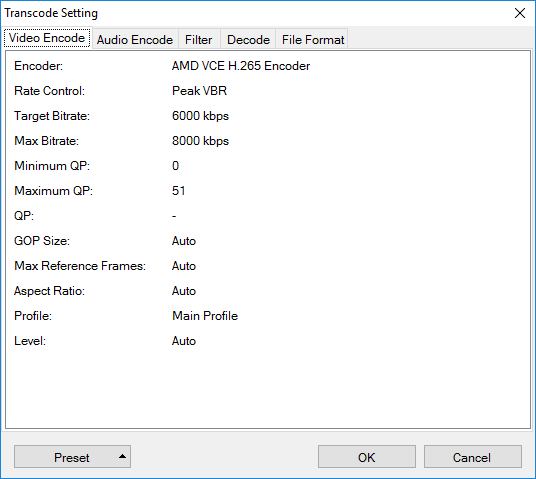cageymaru
Fully [H]
- Joined
- Apr 10, 2003
- Messages
- 22,076
A's Video Converter. H.265 and HEVC. Of course you need a H.265 and HEVC compatible video card to use those particular features.
http://bluesky23.yukishigure.com/en/AsVideoConv.html
http://bluesky23.yukishigure.com/en/AsVideoConv.html
Last edited:
![[H]ard|Forum](/styles/hardforum/xenforo/logo_dark.png)
